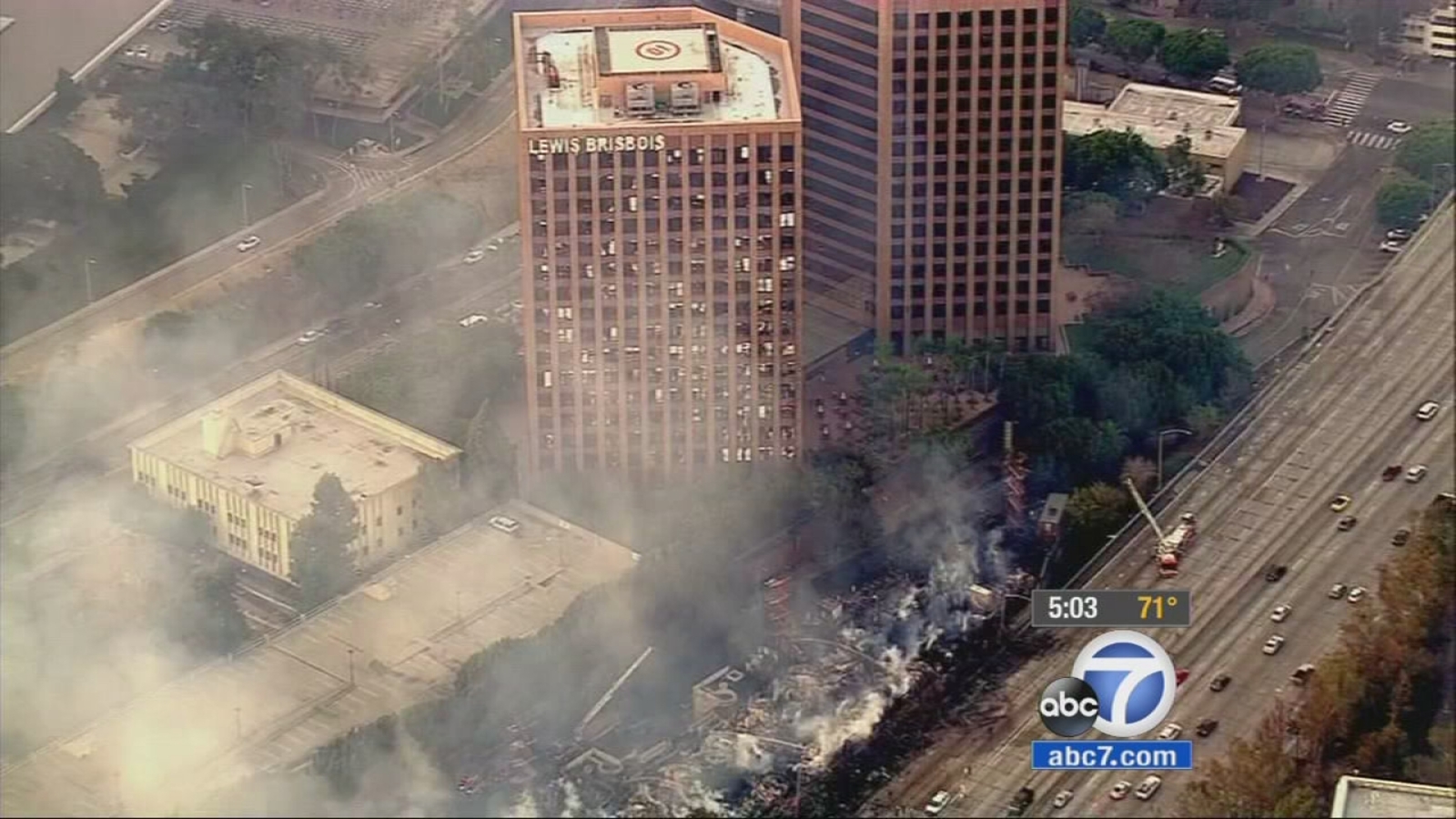Wildfire Speculation: Examining The Market For Los Angeles Fire Bets

Table of Contents
The Growing Market for Wildfire Prediction
Predicting the unpredictable is the core challenge of the wildfire prediction market. However, advancements in data analysis and technology are making more accurate forecasting a reality.
Data-Driven Predictions
Predictive models for Los Angeles wildfires leverage an array of data sources to assess risk.
- Climate Data: Temperature, humidity, wind speed, and precipitation patterns from sources like the National Weather Service and NOAA are crucial inputs.
- Historical Fire Patterns: Analyzing past fire incidents, including their location, intensity, and contributing factors, helps identify high-risk areas.
- Fuel Load Assessments: Satellite imagery and on-the-ground surveys assess the amount and type of flammable vegetation, crucial for gauging fire potential.
- Government Reports: Cal Fire reports and other official assessments provide valuable insights into wildfire trends and mitigation efforts.
Despite these advancements, limitations remain. Accuracy is affected by unpredictable weather patterns and the complex interplay of environmental factors. Unforeseen events, like lightning strikes, can also significantly impact predictions.
The Role of Insurance Companies
Insurance companies are major players in the Los Angeles fire bets market, albeit indirectly. They rely heavily on wildfire prediction models to:
- Assess risk: Determine the likelihood of wildfire damage in specific areas to adjust premiums accordingly.
- Set premiums: Higher risk areas see increased premiums, reflecting the greater potential for payouts.
- Develop mitigation strategies: Insurance companies are increasingly incentivizing wildfire mitigation measures, such as defensible space creation and home hardening.
The availability of wildfire insurance also varies significantly across Los Angeles, with some high-risk areas facing difficulty securing coverage or facing extremely high premiums.
Investment Opportunities Surrounding Wildfire Mitigation
The increasing awareness of wildfire risk has spurred investment in wildfire prevention technologies and infrastructure.
- Wildfire Mitigation Technologies: Companies developing advanced early warning systems, improved firefighting equipment, and preventative technologies attract substantial investment.
- Investment in Infrastructure: Investing in improved infrastructure for water supplies, road access, and communication systems in high-risk areas is also becoming more appealing.
- Government Incentives: Government grants and tax incentives further stimulate investment in wildfire prevention and mitigation measures.
Ethical Considerations of Los Angeles Fire Bets
While data-driven predictions offer valuable insights, the ethical dimensions of profiting from wildfire risk are undeniable.
Profiting from Disaster
The idea of profiting from the misfortune of others raises serious ethical concerns. Potential downsides include:
- Price Gouging: Unconscionable increases in insurance premiums or the exploitation of vulnerable populations.
- Exacerbating Housing Inequalities: Higher insurance costs could disproportionately affect low-income communities, pushing them further into housing insecurity.
The Accuracy and Transparency of Predictions
The accuracy and transparency of wildfire prediction models are critical.
- Need for Regulation: Clearer regulations are needed to ensure responsible data handling and accurate reporting.
- Potential for Bias: Prediction models can incorporate biases based on the data used, potentially leading to inaccurate or unfair risk assessments.
The Impact on Vulnerable Populations
Wildfires disproportionately impact low-income communities and vulnerable populations, who may lack resources for prevention, mitigation, or recovery.
- Social and Economic Consequences: Displacement, loss of property, and limited access to disaster relief can have long-lasting effects.
- Need for Equitable Disaster Relief: Addressing systemic inequalities is crucial for ensuring fair and equitable distribution of resources during and after wildfires.
Regulatory Landscape of Wildfire Prediction and Betting
The regulatory landscape surrounding wildfire prediction and related financial activities remains underdeveloped.
Current Regulations
Currently, regulations are fragmented and primarily focus on insurance practices and land management rather than explicitly addressing the speculative aspects of wildfire prediction. There is a lack of specific legislation governing "Los Angeles fire bets."
Future Regulatory Needs
Addressing the ethical and societal implications requires stricter regulations.
- Transparency and Data Access: Regulations could mandate the transparent sharing of data used in predictive models.
- Preventing Misinformation: Stricter rules on the dissemination of wildfire predictions would prevent the spread of inaccurate information.
- Protection of Vulnerable Populations: Regulations should focus on safeguarding the rights and interests of vulnerable communities.
Conclusion
The market for Los Angeles fire bets presents a complex interplay of technological advancement, ethical considerations, and regulatory challenges. While data-driven predictions offer valuable insights into wildfire risk, responsible consideration is crucial. The potential for exploitation and the disproportionate impact on vulnerable populations demand careful scrutiny. Further research is vital, particularly in developing robust regulations and promoting transparent and ethical practices within the wildfire prediction market. Responsible investment in wildfire mitigation technologies and infrastructure is also essential. By engaging with these challenges proactively, we can strive towards a future where the prediction of wildfire risk serves to protect communities, rather than profit from their misfortune. Let's shift our focus from simply analyzing Los Angeles fire bets to actively mitigating Los Angeles wildfire risk through responsible investment and action.

Featured Posts
-
 Hugh Jackmans Support For Blake Lively And Ryan Reynolds Against Justin Baldoni
May 28, 2025
Hugh Jackmans Support For Blake Lively And Ryan Reynolds Against Justin Baldoni
May 28, 2025 -
 O Kosmos Toy Goyes Anterson Zontaneyei Se Londini Ekthesi
May 28, 2025
O Kosmos Toy Goyes Anterson Zontaneyei Se Londini Ekthesi
May 28, 2025 -
 The Phillies Mets Opener Analyzing Arraez And Carpenters Roles
May 28, 2025
The Phillies Mets Opener Analyzing Arraez And Carpenters Roles
May 28, 2025 -
 Depp Y El Productor De Piratas Del Caribe Se Reunen Regreso De Jack Sparrow
May 28, 2025
Depp Y El Productor De Piratas Del Caribe Se Reunen Regreso De Jack Sparrow
May 28, 2025 -
 Meilleur Prix Samsung Galaxy S25 512 Go 5 Etoiles 985 56 E
May 28, 2025
Meilleur Prix Samsung Galaxy S25 512 Go 5 Etoiles 985 56 E
May 28, 2025
